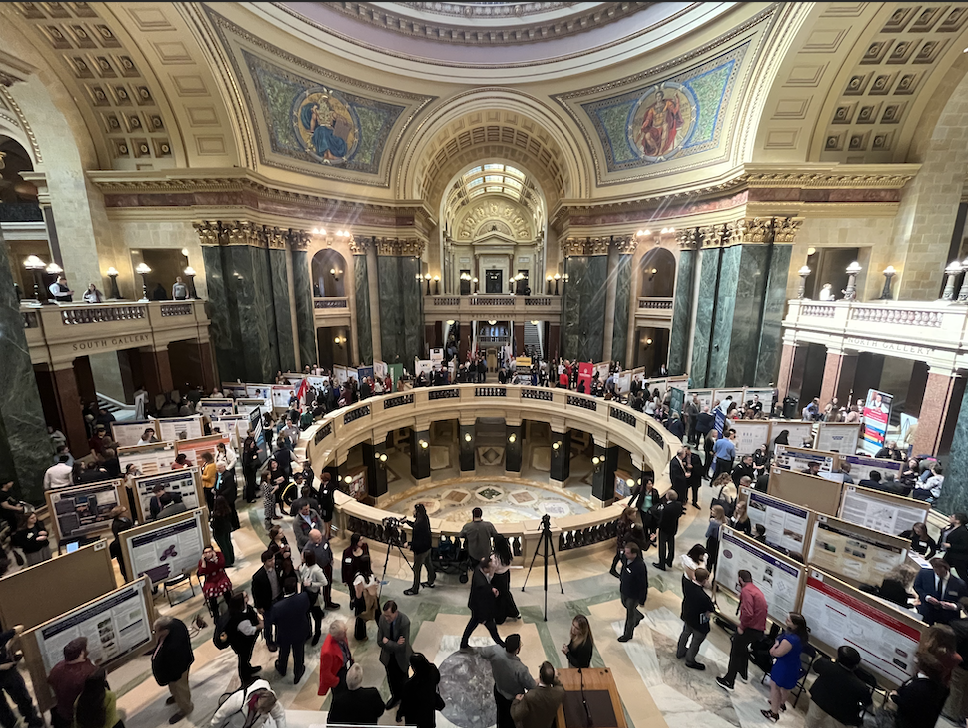The University of Wisconsin System hosted its 20th annual “Research in the Rotunda” event, an undergraduate research symposium that showcases the work of outstanding undergraduate researchers from across the UW System Wednesday, according to a press release from the Universities of Wisconsin.
The event, which is free and open to the public, lasted from 10:30 a.m. to 2:30 p.m., and was punctuated at noon by remarks from Universities of Wisconsin President Jay Rothman. During his address, Rothman spoke on the importance of undergraduate research and its promotion within the UW System.
“Undergraduate research projects like this are a terrific way to gain hands-on experience by identifying a challenge and then using creative and innovative thought along with data and problem solving skills to find solutions,” Rothman said. “Can you imagine anything better that we can teach — critical though, creativity, innovation and problem solving?”
Rothman noted in his speech that the symposium included about 100 research projects presented by 160 researchers from all 13 UW System schools and attracted over 350 people to register for the event ahead of time.
UW–Stevens Point chemistry professor Joseph Mondloch attended the event as a faculty mentor. He advises a group of undergraduates researching the absorption potential of PFAS, “forever chemicals,” in nonporous solids. Research in the Rotunda provides an opportunity for undergraduates to watch their research manifest in tangible ways, Mondloch said.
“The idea with undergraduate research is to get students involved hands on with projects,” Mondloch said. “That’s really nice when there are real world projects that have some tangible result that’s related to the state of Wisconsin and so [students] get a chance to tell people about their science and it’s a really good professional opportunity for them.”
Zach Wilson, an undergraduate student studying psychology and neuroscience at UW–Parkside attended the Research Rotunda to present research on the deep reward pathway. A better understanding of the excitation and inhibition mechanisms of the reward pathway might have serious implications for the way that diseases like anorexia, obesity and substance use disorder are treated in the future, Wilson said.
Wilson said that he hoped that Research in the Rotunda might serve as a vehicle for his team’s research.
“This is like getting my name out here,” Wilson said. “It’s kind of like building up a reputation so that I can be noticed, not just by professors but by important figures in our government who are able to refer back to this research and hopefully be able to get it out there.”
The event was attended by legislators, cabinet secretaries, administration officials, members of the UW Board of Regents, university leaders and business members from around the state, Rothman said.
Rothman closed out his remarks looking towards the future, expressing a commitment to the expansion of higher education access throughout the state.
“To ensure future students have the same opportunities as the students that are with us today we will continue to work with legislators and other stakeholders to ensure higher education is accessible to all of Wisconsin residents and that the Universities of Wisconsin maintain the quality standard that has been set over the many years because that is absolutely vital to our state,” Rothman said.



